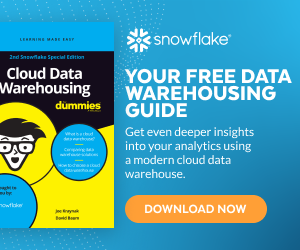Open Data
The broadest definition of open data is one where certain data sets are made freely available to all users. These users can also further disseminate that data to other interested parties. In this definition, it should remain free of copyright or patent restrictions.
One of the most common types of open data is open government data (OGD), where governmental agencies at all levels create and disseminate public data sets for consumption by citizens and potentially other interested parties.
Within a larger business organization — across departments, business units, geographies, or even within a wider partner or customer ecosystem — open data is a way to share critical business, market, and internal resources data to interested stakeholders. At its most simple, open data within a corporate environment consists of a corporate portal or Intranet (HR data, forms, GTM info, competitive data). It could also be a data catalog, which allows users to search across key data depositories (including HR, ERP, and financial systems).
Open Data and SNOWFLAKE
With the Snowflake Data Exchange, companies can establish a private data hub and open access to employees, business units, partners, customers, and others. With Snowflake Cloud Data Platform, there is no need to move, copy, or transfer any data. Eliminating ETL hassles also reduces data security risk. Companies can also leverage public data sets from the Snowflake Marketplace to combine with their own data to analyze and potentially share within their own data hub.
